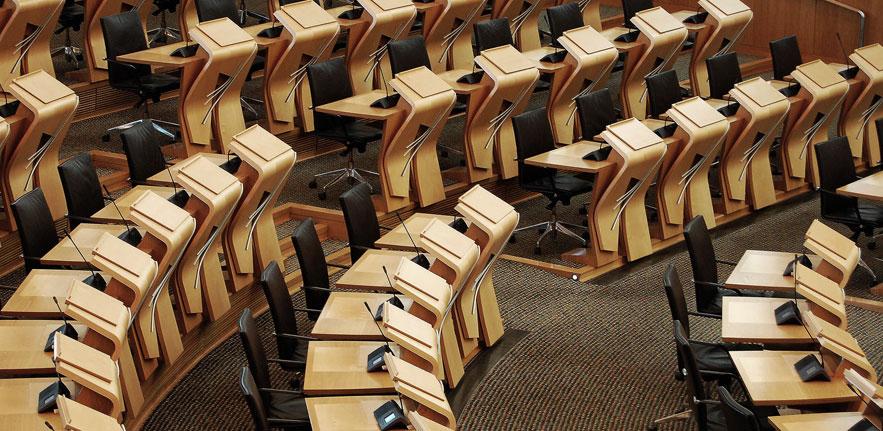
June 17, 2019 – As the race to determine the next group of European Presidents and Commissioners hots up, European businesses urge the next generation of EU decision-makers to take the necessary actions to deliver a prosperous, innovative, climate neutral economy.
In a new briefing paper, The Prince of Wales's Corporate Leaders Group (CLG), working with the We Mean Business coalition, has identified key areas where policymakers and businesses must work together to position European economies in the forefront of the new industries and business models that will be required as the world increasingly responds to the climate crisis.
A new agenda for Europe: Business priorities to deliver a prosperous, climate neutral economy outlines a systemic, economy-wide agenda articulated around five priorities for Europe’s new leaders at the start of a period of potential political flux.
Eliot Whittington, Director, CLG said:
“Europe has a great track record for leadership on climate action and the clean economy – but the decisions made in the term of the next European Parliament and Commission, will be critical to see if the EU can build on this leadership and secure the potential economic, social and environmental benefits that European citizens are increasingly voting for.
“Leading businesses recognise both the urgency of addressing the climate challenge and the opportunities that the shift to a climate neutral economy will bring. With the Commission’s ‘A Clean Planet for All’ we have a strategy for the EU to deliver that. What is essential now, is leadership and commitment from across Europe’s leaders, to put a plan in place to deliver that vision.”
On 20 June, the European Heads of State will come together to agree a candidate for the next Commission’s President and a strategic agenda for the new institutions – as well as to discuss climate action. It is clear that a strong climate mandate must be set and agreement reached on a climate neutral EU by 2050 at the latest. The paper sets out the following priorities:
1. AMBITION: Aim for climate neutrality and commit to step up the pace of action
Clarity on Europe’s decarbonisation pathway will give businesses the confidence to invest decisively in zero carbon infrastructure, products and services. The new EU institutions must set a clear EU commitment to achieve net zero greenhouse gas (GHG) emissions by 2050 at the latest, and publish a credible and sustainable transition plan for how to get there. The EU also has the opportunity to work with other countries to increase 2030 climate ambition, including through climate diplomacy.
2. ENERGY: Create a smart and integrated approach to energy, mobility and buildings
A smart and integrated approach to energy, mobility and buildings can save costs, save carbon and position European companies at the forefront of rapidly growing global business opportunities. To get there, the new EU institutions should fully implement recently agreed legislation in these sectors, build the infrastructure needed for carbon-free energy and mobility, facilitate a just transition for high-carbon regions, and work to prepare the ground for even deeper innovation and decarbonisation.
3. INDUSTRY: Build a modern, clean and circular industrial strategy
The greening of industry and the shift to a circular economy can help retain industrial production in Europe while Europe decarbonises, positioning it as a leader as international markets for clean products grow. The new EU institutions must support this by producing the long-awaited European industrial strategy with the clean and circular economy at its core. This should include targeting EU innovation support towards industrial decarbonisation and circular economy innovations, and using public procurement and trade policy to drive demand and create markets for low embodied carbon materials.
4. LAND: Transform Europe’s food, agriculture and land use systems
Challenges including declining biodiversity, and increasing water stress and soil degradation, require a new approach, while at the same time the sector has a unique opportunity not only to cut emissions but also to enable natural carbon dioxide removals. The EU must develop a new approach to agriculture that allows the bio-economy to flourish in ways that support these social and environmental goals. This should include agriculture reform and land use incentives; targeting innovation efforts on food, agriculture and the bio-economy; building resilience to the impacts of climate change; and working to reverse global deforestation and address land use change.
5. INVESTMENT: Mobilise investment in the clean economy
To accelerate the zero carbon transition and avoid significant stranded assets, the new EU institutions must urgently align EU spending and lending with the climate transition, and end fossil fuel subsidies. They should also work to implement and deepen EU Sustainable Finance reforms including on corporate reporting, and demonstrate global leadership on sustainable finance issues.
Read or download the briefing here.




